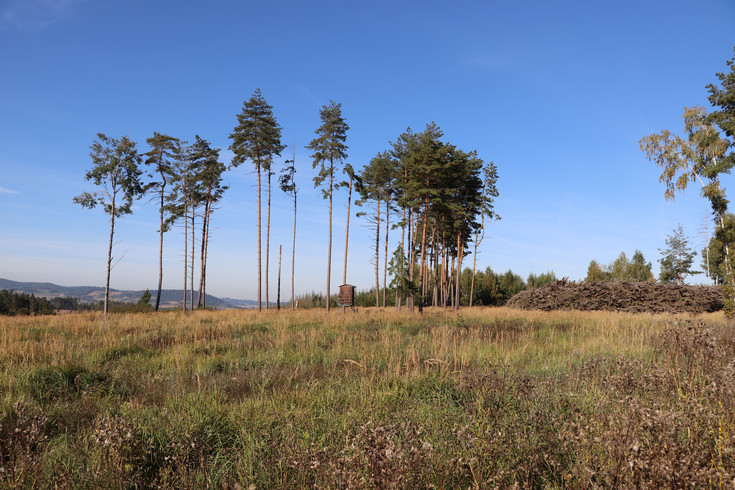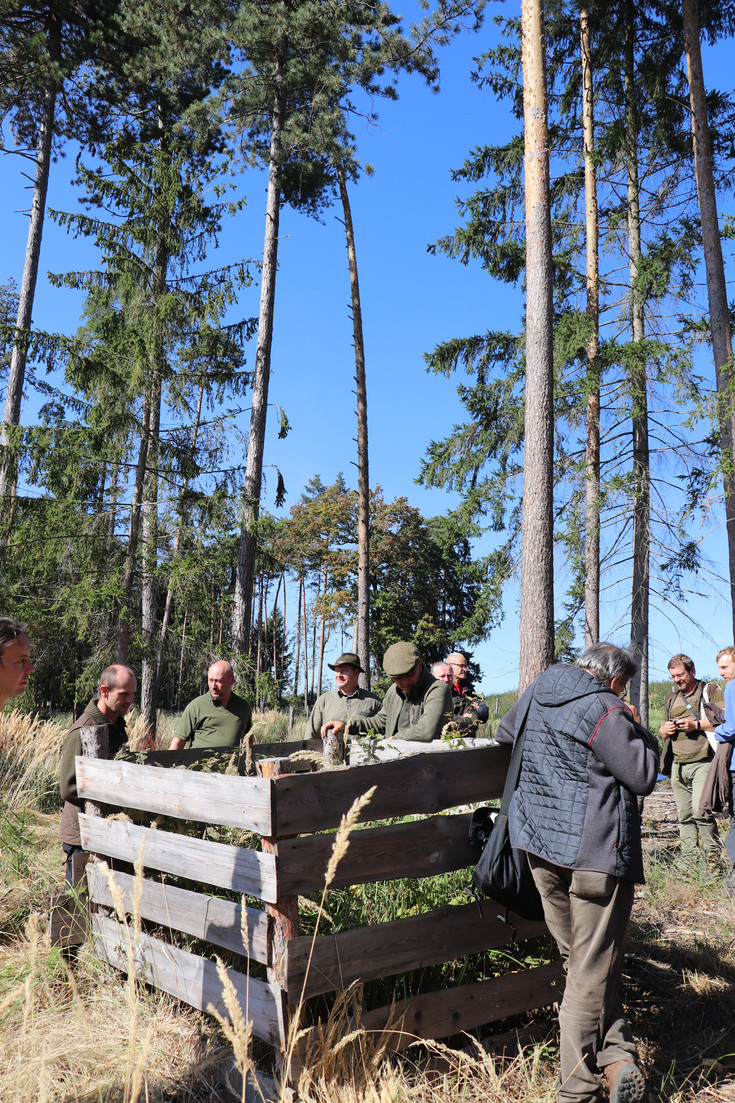19.01.2023 - Forests know no borders: New early warning platform for transnational forest risk management

Since 2015, a mass reproduction of the spruce bark beetle (Ips typographus) triggered by prolonged, intense drought has caused extensive areas of forest in the Waldviertel and Mühlviertel regions and in neighboring areas of the Czech Republic to die, necessitating large clearcuts to clear up the infested trees. © Elisabeth Gerhardt
BOKU researchers have developed a freely accessible tool for knowledge and information exchange in the INTERREG project FORRISK together with local and Czech colleagues.
What is the situation of the forests in the Mühlviertel and Waldviertel and in the border region to the Czech Republic and what developments can be expected in the future? What improvements in forest management and what risk management are necessary?
These and other questions have been investigated by the cross-border Austrian-Czech INTERREG project FORRISK under the leadership of the Institute of Silviculture at the University of Natural Resources and Life Sciences Vienna (BOKU) in cooperation with two other BOKU institutes (Institute of Forest Entomology, Pathology and Protection IFFF; Institute of Geomatics) as well as the Federal Institute of Agricultural Economics and Mining (BAB) and the Czech University MENDELU in Brno over the past two years.
Old and new pests
The last decades have already shown a clear increase in temperature and precipitation deficits, extreme weather events such as storms, wet snow and drought have increased. However, known and new insect pests and pathogens are also increasingly endangering forest stands. In this context, the decades-long forced management of pure spruce and pine stands in a clear-cut system is proving to be ecologically and economically very risk-prone. "Due to the extremely dry and hot years between 2015 and 2018, the damage caused by bark beetles, especially the spruce bark beetle (Ips typographus), has reached unimagined proportions. This posed major problems for forest owners, authorities and stakeholders," says Thomas Kirisits, head of the IFFF at BOKU. This resulted in major challenges in the areas of forest protection, timber harvesting, logistics and marketing, as well as reforestation.
Experimental plots were therefore set up in some forest enterprises to improve knowledge and experience regarding reforestation and forest conversion measures. Eduard Hochbichler from the Institute of Silviculture and the project team have now re-evaluated these data bases, discussed the state of knowledge on different management strategies at farm level as well as strategies for risk management with the Czech colleagues and subsequently developed joint recommendations.
Platform open to all interested parties
In the future, these will be available to all interested parties on a cross-border, freely accessible early warning platform (https://short.boku.ac.at/forrisk) with important information and findings from the project for sustainable and multifunctional forestry. "The platform will be an essential cross-border communication tool," emphasises Elisabeth Gerhardt, staff member at the Institute of Silviculture and coordinator of the FORRISK project on the Austrian side.
Based on an intensive cross-border exchange of information and knowledge between science, forest owners, forest practitioners, representatives of the authorities, political decision-makers and the public, a comprehensive handbook for integrated crisis and risk management was also written. This includes recommendations for forest protection, for future forest management and tree species selection or tree species mix for reforestation or regeneration measures and for the maintenance of stands of different ages.
Adapted trees
Homogeneous, unstable coniferous pure stands of the same age on unsuitable sites, which currently dominate in the project area, are to be replaced in future by climate-fit, more resistant and resilient broadleaf or mixed broadleaf-conifer stands. According to Markus Immitzer, deputy head of the Institute of Geomatics, GIS-based approaches can also provide valuable support in planning and implementing modified forest management.
More details on the INTERREG project:
Team of authors Austria:
BOKU: Elisabeth Gerhardt, Eduard Hochbichler, Zoran Trailovic (Institute of Silviculture); Peter Baier, Thomas Kirisits, Sigrid Netherer (Institute of Forest Entomology, Forest Pathology and Forest Protection); Markus Immitzer (Institute of Geomatics)
BAB: Gerhard Gahleitner, Karin Heinschink, Thomas Resl
Scientific contact:
Ao. Univ.Prof. DI Dr. Eduard Hochbichler
eduard.hochbichler@boku.ac.at
DI Elisabeth Gerhardt
elisbeth.gerhardt@boku.ac.at
Institute of Silviculture
University of Natural Resources and Life Sciences Vienna



